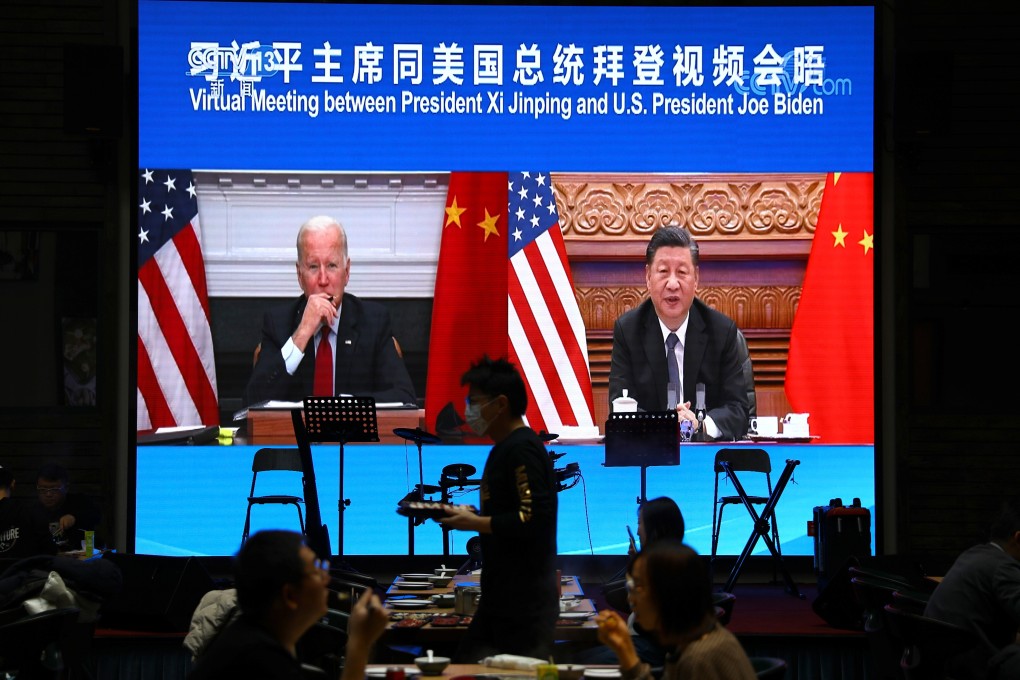How Xi and Biden tackled hot-button issues at virtual summit
- Readouts from the Chinese foreign ministry and the White House offer insights into wide-ranging virtual meeting lasting well over three hours
- Both leaders stressed the need for cooperation, while laying down red lines on Taiwan, trade and human rights

While a full transcript of the meeting, which lasted over 3½ hours and covered a wide range of topics, has not been released, the Chinese foreign ministry and the White House have published readouts summarising the proceedings.
Here’s how they addressed key issues discussed by the two leaders.
Bilateral relations
“With their interests deeply intertwined, China and the US stand to gain from cooperation and lose from confrontation,” Xi was quoted as saying. “The world is big enough for the two countries to develop individually and collectively.”
US: According to the White House statement, “President Biden underscored that the United States will continue to stand up for its interests and values and, together with our allies and partners, ensure the rules of the road for the 21st century advance an international system that is free, open, and fair.”
Tensions over Taiwan
China: Xi described the heightened tensions in the Taiwan Strait as a “dangerous” trend, saying that Taiwanese authorities were trying to “rely on the United States for independence”, while others in the US intended to “use Taiwan to control China”, the ministry readout said.
